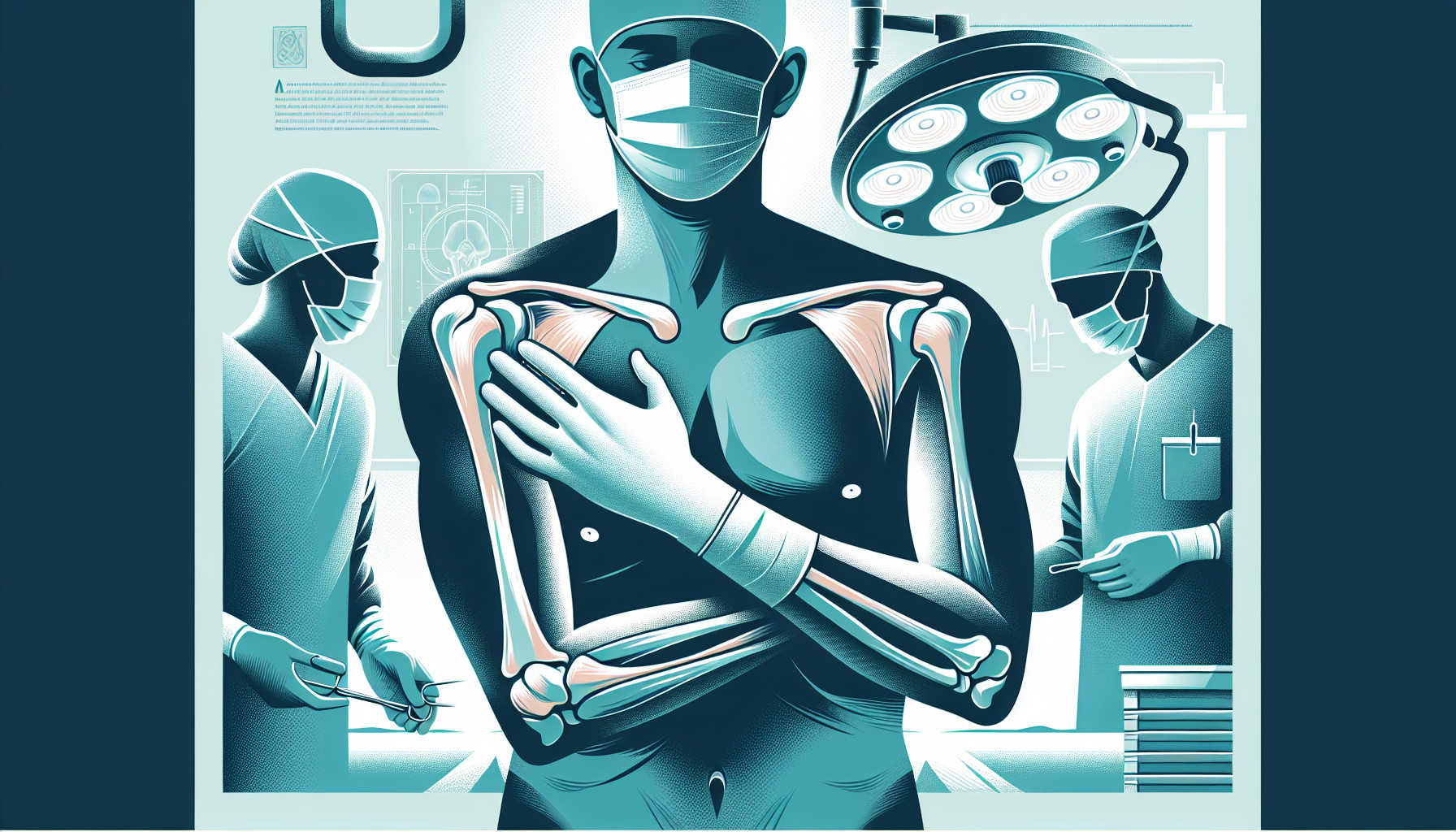Our Summary
This research paper discusses the use of various diagnostic tests to detect infections in shoulder joint replacements. These tests are not as reliable for shoulder infections as they are for hip and knee infections, largely because the bacteria often found in shoulder infections are less harmful and thus harder to detect. One potential solution could be to use a type of minimally invasive surgery, called diagnostic arthroscopy, to get tissue samples from the shoulder. These samples can then be cultured to identify any infection. However, there isn’t much data available on how effective this procedure is.
FAQs
- Why are diagnostic tests for shoulder joint replacements less reliable than those for hip and knee replacements?
- What is diagnostic arthroscopy and how can it help in detecting shoulder infections?
- Why is there limited data available on the effectiveness of diagnostic arthroscopy in detecting shoulder infections?
Doctor’s Tip
One helpful tip a doctor might give a patient about shoulder replacement is to follow the post-operative care instructions carefully. This may include physical therapy exercises to regain strength and range of motion in the shoulder, as well as taking any prescribed medications to prevent infection and manage pain. It is important to attend all follow-up appointments with the surgeon to monitor the healing process and address any concerns promptly. Additionally, it is important to avoid any activities that could put excessive strain on the shoulder joint to prevent complications and ensure a successful recovery.
Suitable For
Patients who may be recommended for shoulder replacement surgery typically include those with severe shoulder arthritis, rotator cuff tears, or other conditions that cause significant pain and limited range of motion in the shoulder joint. These patients may have already tried conservative treatments such as physical therapy, medications, and injections without success.
In addition, patients who have had previous shoulder surgeries that have not been successful or have developed complications may also be candidates for shoulder replacement. Younger patients with end-stage arthritis or severe shoulder injuries may also be considered for shoulder replacement, although their age and activity level may influence the decision.
Ultimately, the decision to recommend shoulder replacement surgery is made on a case-by-case basis by the orthopedic surgeon after a thorough evaluation of the patient’s medical history, symptoms, physical examination, and imaging studies.
Timeline
Before shoulder replacement surgery:
- Patient experiences chronic shoulder pain, stiffness, and limited range of motion.
- Patient undergoes physical examination, imaging tests (such as X-rays and MRI), and possibly blood tests to determine the extent of damage to the shoulder joint.
- Orthopedic surgeon recommends shoulder replacement surgery as a treatment option.
After shoulder replacement surgery:
- Patient undergoes pre-operative testing, such as blood work and a physical examination, to ensure they are healthy enough for surgery.
- Shoulder replacement surgery is performed, during which the damaged parts of the shoulder joint are replaced with artificial implants.
- Patient undergoes post-operative rehabilitation, including physical therapy and exercises to improve strength and range of motion in the shoulder.
- Patient may experience pain and discomfort immediately after surgery, which is managed with pain medication.
- Over time, patient gradually regains function and mobility in the shoulder joint, with full recovery typically taking several months.
What to Ask Your Doctor
- What are the potential risks and complications associated with shoulder replacement surgery?
- How long is the recovery process after shoulder replacement surgery?
- What type of physical therapy or rehabilitation will be needed after the surgery?
- How long can I expect the shoulder replacement to last?
- What type of activities or movements should I avoid after the surgery?
- Will I need to take any medications after the surgery, and if so, what are the potential side effects?
- How often will I need to follow up with you after the surgery?
- Are there any alternative treatments to shoulder replacement that I should consider?
- How can I best prepare for the surgery to ensure a successful outcome?
- What signs or symptoms should I watch for that may indicate a possible infection in the shoulder joint replacement?
Reference
Authors: Ricchetti ET. Journal: Arthroscopy. 2019 Sep;35(9):2578-2580. doi: 10.1016/j.arthro.2019.05.004. PMID: 31500742
